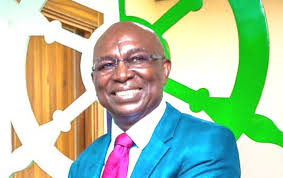Apparently worried by the epileptic distribution of petroleum products in 2008, the Petroleum Products Marketing Company (PPMC) has disclosed that there is need to enlist the cooperation of security and para-security agencies in the fight against pipeline vandalism.
Submitting that scarcity often occurs when its pipelines are attacked by unscrupulous people, the PPMC; a subsidiary of NNPC explained that the menace would reduce when these agencies can work with it.
The PPMC, in a statement in Lagos explained further that a combination of factors such as: community policing, posting of mobile task force along pipelines, and engaging the Nigerian Security and Civil Defence Corp to provide intelligent and security surveillance is the panacea to the recurring cases of pipeline vandalism and the consequent scarcity of products.
Stressing that it was already working on how to ensure equitable distribution of petroleum products, the PPMC in a statement signed by its image maker, Mr. Ralph Ugwu maintained that to assure steady supply all hands must be on deck.
Apart from these measures, the organisation also added that it had already formed an anti-pipeline vandalism alliance with the Independent Petroleum Marketers Association of Nigeria (IPMAN) and the Petroleum Tanker Drivers (PTD) branch of NUPENG.
The PPMC also added that it would intensify the campaign on Radio, television as well as newspaper and magazines to continue to warn villagers about the dangers that are inherent in scooping fuel form vandalized pipelines.
He urged the government to explain to the people the process of reduction so that when there was a price increase at the international market, it would not necessarily lead to price hike of products.
“We want the government to tell us the approach they will use so that it will not lead us to paying back if prices rise. Let us discuss now and know how much we will pay,” he said.
In the same vein, Tokunbo Korodo, the Lagos Zonal Secretary of NUPENG, who toed the same line with his counterpart, said that the reduction in price of oil products was long overdue.
“It should have come as soon as there was a drop in oil prices at the international market because when prices went up, the people were made to pay without delay,” he said.
Korodo argued that when the price went up, stakeholders would negotiate, insisting that no government had given account of monies realized from excess crude.
However, some NURTW members told NAN that reducing transport fares, especially in Lagos would be determined by various factors other than fuel price reduction.
Mr. Rafiu Adegbenro, an official of the union said that commercial bus operators could reduce their fares if the fare was determined only by the price of fuel. He also said that until the government pegged the amount for the products, it would be difficult to determine whether the drivers would reduce their fares or not.
















Discussion about this post